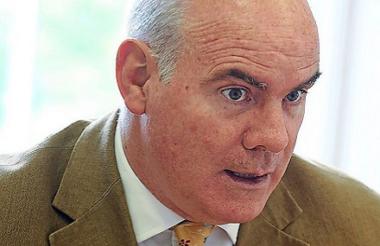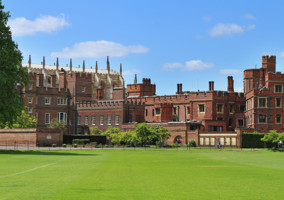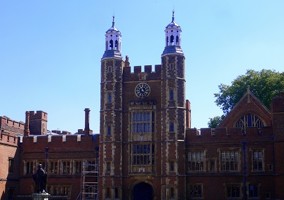Heads of the largest independent schools have warned they will sacrifice the benefits of charitable status rather than give in to government proposals to make them run state schools, which are expected in the next few weeks.
Last year government produced a consultation document called Schools that Work for Everyone. This included a proposal to make independent schools do more if they want to retain the advantages of charitable status.
The document says that if schools to do not comply voluntarily, the government will change the law to strip schools of their charitable tax breaks – although not necessarily their charitable status – and force the Charity Commission to change its guidance on independent schools.
It is questionable whether the proposals would comply with charity law. The Charities Act 2011 contains a line which says that "In the exercise of its functions the Commission is not subject to the direction or control of any Minister of the Crown or of another government department".
The consultation is now closed but the Department for Education has said it is planning to take the plans forward, and will produce a white paper shortly with much firmer legal proposals.
'No one wants the nuclear option'
Last week Mike Buchanan, the chair of the Headmasters’ and Headmistresses’ Conference (HMC), one of several umbrella bodies for the independent schools sector, warned that if government tried to enforce the changes, schools would resist.
“Independent schools are supposed to be independent of government,” he wrote in a joint letter with Russell Hobby, general secretary of the National Association of Head Teachers. “The clue is in the name. If the Prime Minister tells them what to do as they are told or lose the financial benefits of being charities, many will walk away.
“This isn’t petulance. It goes much deeper than that. Being free from government interference, they argue, is why they fund themselves through fees and why they have been able to excel, free from under-investment and constantly changing educations policies. It is this independence, under the regulation of the Charity Commission, which creates the ethos that the government wants state schools to copy.
“No one wants the nuclear option. It will cost millions which would have been better spent on state schools, soak up even more lawyers’ time (if there are any left over from Brexit) and put some small independent schools at risk of closure, bringing even more pupils into the cash-strapped state system.”
Plans hard to implement
Penny Chapman, partner at the law firm Bircham Dyson Bell, said that there would be many problems with implementing the government’s plans as outlined in last year's consultation.
“This is one of the most poorly drafted and ill-conceived pieces of work that I have ever had the misfortune to read,” she said. “There is sparse logic and precious little evidence to show that it is necessary.
“Since the consultation there has been little formal change, except that Phillip Hammond has now said we will have a white paper in a few weeks, but the Department for Education has been making all sorts of threatening noises.”
From Governance & Leadership
Chapman said that the schools sector is now divided on how to approach the new DfE proposals. She said that many school governors had been sent a letter detailing an agreement between DfE, the Independent Schools Council – one of five umbrella bodies representing schools – and AGBIS, the representative body for school governors. This agreement says that the two bodies will encourage schools to meet the DfE criteria, and the Charity Commission will be asked to carry out more monitoring of schools.
But she said many schools had no intention of following this agreement.
“There’s a real division between schools,” she said. “Many have said they do not support the ISC proposals. I think the larger schools may be particularly ready to resist.”
She questioned how much pressure the government could apply by removing tax breaks from schools. She said the only significant tax break most schools receive is relief from business rates, which is also available to non-charitable educational establishments.
She also said that it would be impossible in practice for schools to simply give up their charitable status – at least without a change in the law, because school buildings are charitable assets.
“If the schools were forced to give up charitable status, the buildings would have to be passed on to another charitable organisation,” she said. “And the buildings are usually not suitable for any purpose except running a school.”
What the consultation said
"We propose that independent schools with the capacity and capability should meet one of two expectations in recognition of the benefits of their charitable status:
- To sponsor academies or set up a new free school in the state sector. The capital and revenue costs of this would be met by the government, but the independent school would have responsibility for ensuring its success. We would expect this school to be good or outstanding within a certain number of years
- To offer a certain proportion of places as fully funded bursaries to those who are insufficiently wealthy to pay fees. We expect this figure to be considerably higher than that offered currently at most independent schools.
"We know that there are a large number of smaller independent schools that do not have the capacity and capability to take on full sponsorship. However, we believe that they still have a role to play in improving schools in the state sector. We will ask these schools to fulfil one or more of the following:
- Provide direct school-to-school support with state schools. This could include providing staff to assist state schools with teacher development and personal support between heads of department in independent and state schools to share best practice. Joining Teaching School Alliances is the best way to make those contributions to teacher development or school improvement really count;
- Support teaching in minority subjects which state schools struggle to make viable, such as further maths, coding, languages such as Mandarin and Russian, and classics;
- Ensure their senior leaders become directors of multi-academy trusts, to give strategic steer and leadership and provide experienced staff to be governors;
- Provide greater expertise and access to facilities, for example access to science labs and music, drama and sporting facilities; and
- Provide sixth-form scholarships to a proportion of pupils in each year 11 at a local school; assisting with their teaching; or helping them with university applications.
"We propose to set new benchmarks that independent schools are expected to meet, in line with their size and capacity. We think it is essential that independent schools deliver these new benchmarks.
"If they do not, we will consider legislation to ensure that those independent schools that do not observe these new benchmarks cannot enjoy the benefits associated with charitable status, and to result in the Charity Commission revising its formal guidance to independent schools on how to meet the public benefit test, putting the new benchmarks on to a statutory footing."
Related articles











